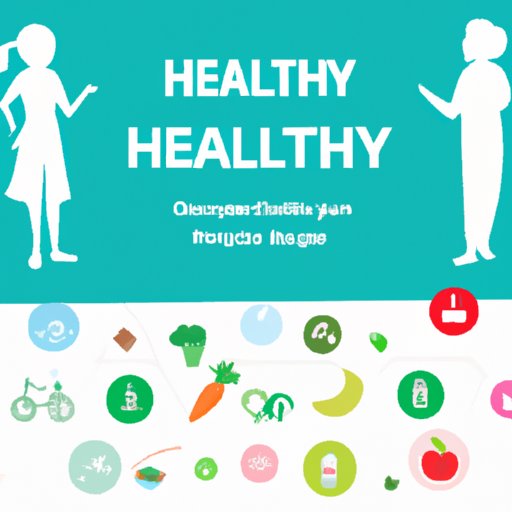Introduction
Health promotion is an important concept in public health. It involves activities that aim to improve the overall health and well-being of individuals and communities. The goal of health promotion is to encourage healthy behaviors and reduce risks for disease and injury. Health promotion is a process, and it encompasses a wide range of activities from providing education to creating policy changes.
Definition of Health Promotion
Health promotion is defined as the process of enabling people to increase control over their health and its determinants, and thereby improve their health. It includes both individual-level and population-level interventions. Individual-level interventions involve providing information and resources to individuals to help them make informed decisions about their health. Population-level interventions involve creating policies and programs to promote health on a larger scale.
Importance of Health Promotion
Health promotion is important because it helps individuals and communities become healthier. By promoting healthy behaviors and reducing risk factors for disease and injury, health promotion can improve the overall quality of life. Health promotion also helps to reduce health care costs by preventing illness and injury before they become more serious and expensive to treat.
Benefits of Health Promotion
Health promotion has many benefits, including:
Support for Well-Being and Healthy Living
Health promotion can provide support for individuals to make positive changes in their lifestyle and health behaviors. This can include providing information and resources, creating an environment that supports healthy choices, and helping individuals to develop skills and self-efficacy to maintain healthy lifestyles.
Improved Quality of Life
Health promotion can lead to improved quality of life. By promoting healthy behaviors, health promotion can help individuals to prevent or manage chronic conditions, reduce stress, and improve mental health. These improvements in quality of life can lead to increased productivity, better relationships, and improved overall wellbeing.

Different Types of Health Promotion Programs
Health promotion programs come in many forms. Some common types of health promotion programs include:
Education
Education is an important part of health promotion. Education can provide individuals with the knowledge and skills they need to make informed decisions about their health. Education programs can take many forms, including health classes, community outreach programs, and online resources.
Screening
Screening is another type of health promotion program. Screening programs are designed to identify individuals who may be at risk for certain diseases or conditions so that appropriate treatment can be provided. Examples of screening programs include mammograms, cholesterol tests, and HIV testing.
Treatment
Treatment programs are designed to provide medical care to those who are already suffering from a health condition or illness. Treatment programs can include medication management, physical therapy, and other forms of medical care.
Role of Health Professionals in Health Promotion
Health professionals play an important role in health promotion. They can provide individuals with the knowledge and resources they need to make healthy decisions. Health professionals can also provide referrals to other resources, such as nutritionists or exercise specialists, if needed. In addition, health professionals can act as advocates for health promotion initiatives and policies.

Strategies for Implementing Successful Health Promotion Programs
Implementing successful health promotion programs requires careful planning and coordination. Here are some strategies for implementing successful health promotion programs:
Develop a Comprehensive Plan
The first step in implementing a health promotion program is to develop a comprehensive plan. This plan should include goals, objectives, strategies, and timelines. It should also include a budget and identify potential partners and stakeholders. This plan will serve as a roadmap for the implementation of the program.
Utilize Available Resources
It is important to utilize all available resources when implementing a health promotion program. This includes identifying and utilizing existing resources, such as existing community organizations and agencies. It also includes seeking out new sources of funding and partnerships.
Monitor Progress
Once the program is up and running, it is important to monitor progress. This means regularly assessing the program to ensure that it is meeting its goals and objectives. Evaluation data can be used to make adjustments to the program as needed.
Conclusion
Health promotion is an important concept in public health. It involves activities that aim to improve the overall health and well-being of individuals and communities. Health promotion has many benefits, including improved quality of life and support for well-being and healthy living. There are many different types of health promotion programs, and health professionals play an important role in these programs. Finally, there are several strategies for implementing successful health promotion programs, including developing a comprehensive plan, utilizing available resources, and monitoring progress.
(Note: Is this article not meeting your expectations? Do you have knowledge or insights to share? Unlock new opportunities and expand your reach by joining our authors team. Click Registration to join us and share your expertise with our readers.)
